(TITC) - On 6th September, the Workshop on promoting responsible tourism for nature, wildlife and no ivory trade took place in the framework of the International Travel Expo Ho Chi Minh City (ITE HCMC 2024).
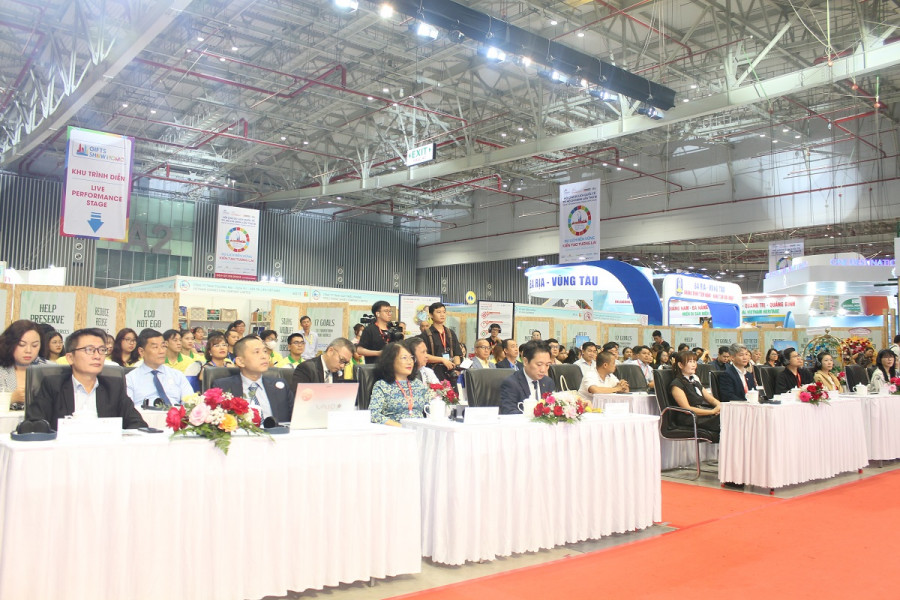
Overview of the workshop (Photo: TITC)
The workshop's main objective is to raise awareness about responsible tourism, especially saying no to ivory products, protecting natural resources and wildlife.
The event took place in the context that Vietnam and the world are facing enormous challenges of climate change, biodiversity loss and the increase in wildlife poaching. According to WWF, global vertebrate populations have declined by 69% since 1970, and more than 1 million animal and plant species are at risk of extinction.
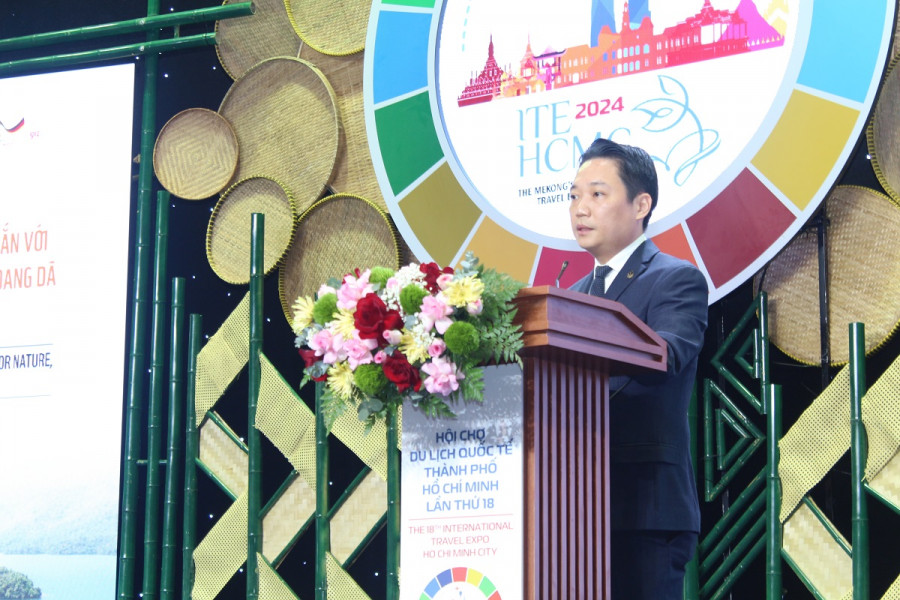
Mr. Le Truong Hien Hoa, Deputy Director of Ho Chi Minh City Department of Tourism speaking at the event (Photo: TITC)
Speaking at the event, Mr. Le Truong Hien Hoa, Deputy Director of Ho Chi Minh City Department of Tourism stressed, tourism must be associated with the responsibility of protecting the environment, especially ecosystems and wildlife. He indicated, sustainable tourism is not only about economic development but also about protecting valuable natural resources and preserving heritage for future generations. Banning the use of ivory and other wildlife products is a necessary step towards this goal.
Ms. Nguyen Thuy Quynh, Communications Director, WWF-Vietnam shared, nature is an invaluable resource not only for tourism but also for human life. She warned of the rapid decline of ecosystems, especially tropical forests - home to more than two-thirds of terrestrial biodiversity. Hunting and using wildlife products, especially ivory, not only pushes species to the brink of extinction but also has profound impacts on ecological chains.
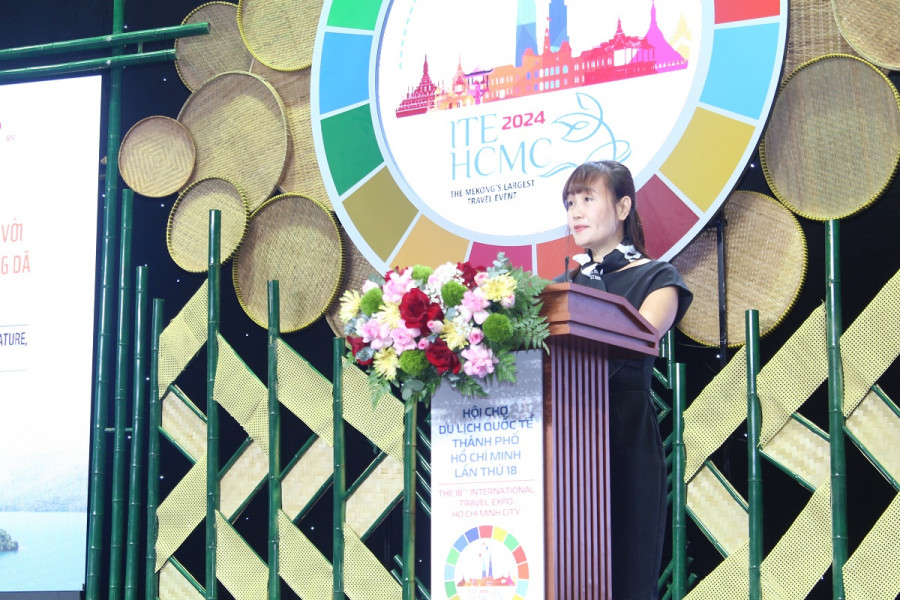
Ms. Nguyen Thuy Quynh, Communications Director, WWF-Vietnam speaking at the event (Photo: TITC)
Responsible tourism and nature conservation
One of the important parts of the workshop was the discussion panel on Responsible Tourism with Nature and Wildlife. Ms. Pham Le Thao, Deputy Head of Travel Industry Management Division, Vietnam National Authority of Tourism (VNAT), presented on the efforts that Vietnam is making to develop sustainable tourism. She noted, responsible tourism is not only about avoiding harm to the environment but also about creating positive values for local society and economy through nature conservation.
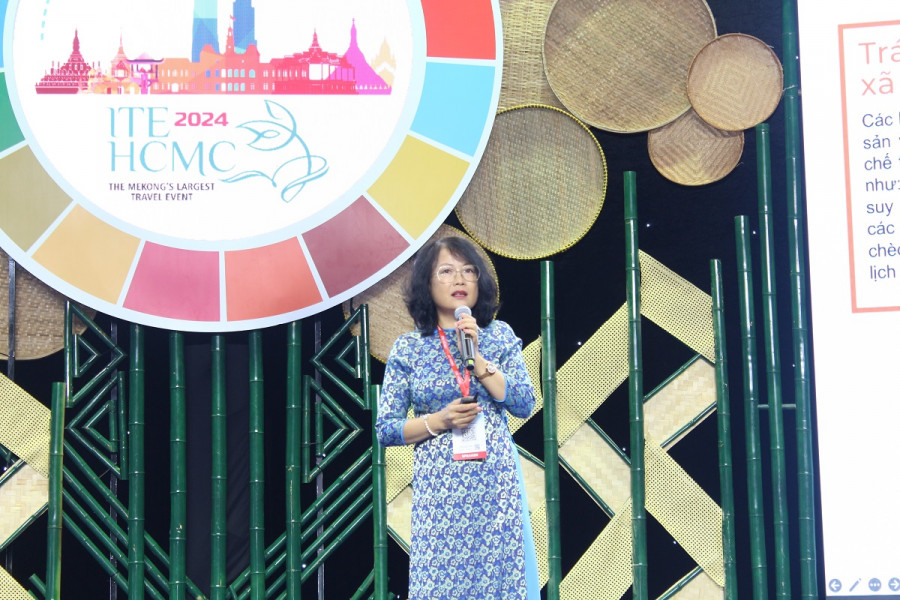
Ms. Pham Le Thao, Deputy Head of Travel Industry Management Division, Vietnam National Authority of Tourism (VNAT) speaking at the event (Photo: TITC)
Ms. Pham Le Thao also named solutions that Vietnam has implemented in recent times. Specifically, collaboration with international organisations such as WWF and GIZ in the Ivory Demand Reduction Project has helped raise awareness and change tourists’ behaviour. Training programmes for tour guides and media campaigns on wildlife protection have made important contributions to reducing demand for ivory in Vietnam.
The Responsible Tourism Practice Guidebook for Nature and Wildlife published at the workshop has become an important document for tour guides and travel businesses. This handbook not only provides detailed instructions on how to organise environmentally friendly tourism activities, but also promotes awareness among tour guides about the importance of protecting wildlife. Behaviours such as not using wildlife products and not damaging the ecosystem at tourist destinations are clearly emphasised in the handbook.
The role of businesses and tour guides in protecting nature and wildlife
Mr. Vuong Quoc Chien, Manager of Ivory Demand Reduction Project at WWF-Vietnam said, tourism businesses need to play a proactive role in promoting sustainable tourism activities, from using environmentally friendly resources to developing tourism programs that focus on protecting natural resources.
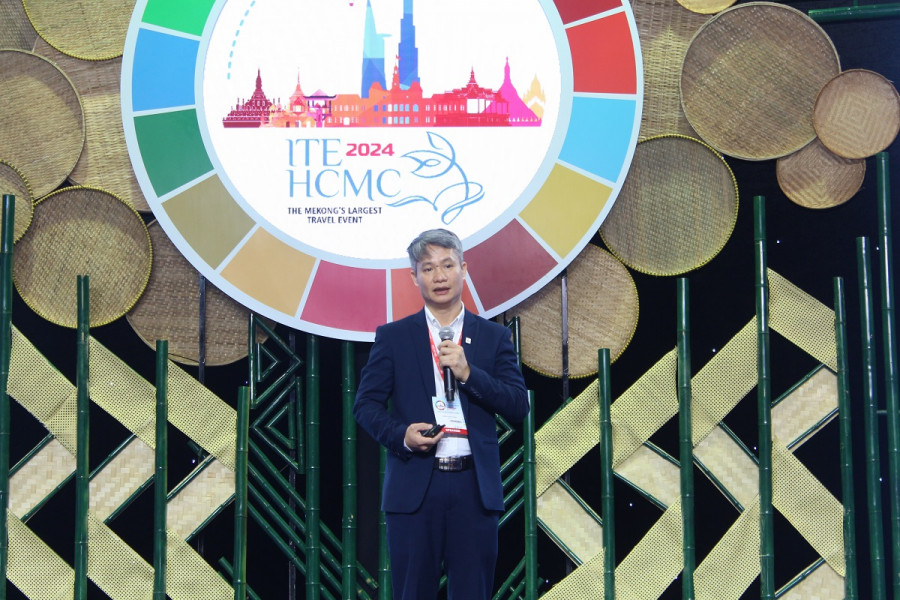
Mr. Vuong Quoc Chien, Manager of Ivory Demand Reduction Project at WWF-Vietnam speaking at the event (Photo: TITC)
Mr. Vuong Quoc Chien stressed that businesses need to work closely with conservation organisations and local authorities to ensure that tourism activities do not negatively impact ecosystems. In addition, he also called on businesses to implement initiatives such as reducing plastic use, encouraging customers to participate in environmental protection activities, and especially saying no to ivory.
Tour guides are not only the ones who convey information about tourist destinations but also the ones who directly instruct tourists about environmental protection, such as no littering, use recycled products, limit the use of plastic and do not participate in activities that affect wildlife. Tourism businesses also play an important role in building sustainable tourism products.
Also at the discussion panel, speakers also stated the story of environmental protection in Ha Long as the typical example.
Regarding the future direction of Vietnam tourism, according to speakers, Vietnam needs to upgrade responsible tourism models for nature and wildlife. Initiatives such as creating protected areas and educating local communities and tourists about the value of the environment and biodiversity will be necessary steps.
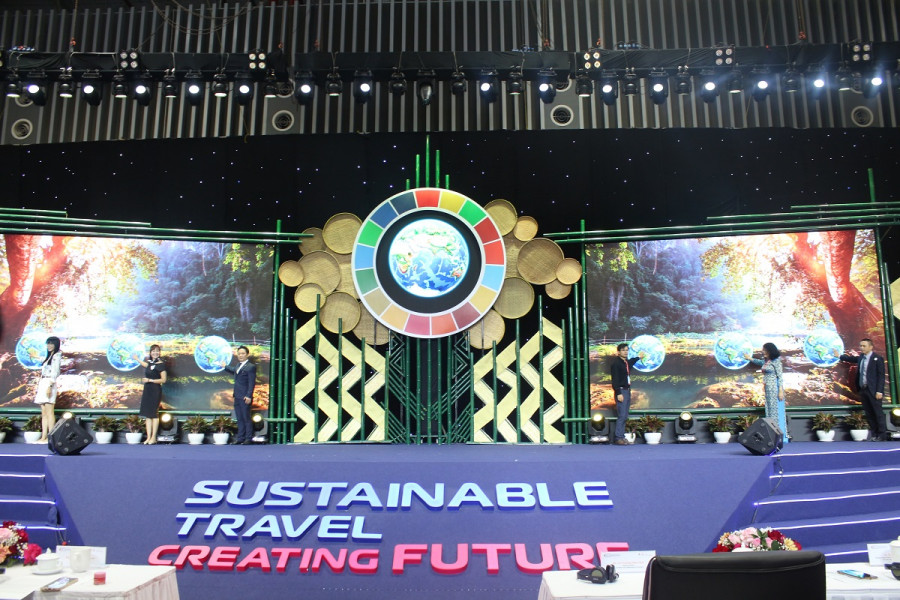
Delegates launching the responsible tourism for nature, wildlife and no ivory trade (Photo: TITC)
In addition, close cooperation between management agencies, tourism businesses and conservation organisations such as WWF is an important factor in ensuring the success of sustainable tourism programmes. Moving beyond mere rhetoric to real action, through measures such as banning the trade of ivory, banning wildlife poaching and protecting sensitive ecological areas, will create positive and lasting change.
The workshop affirmed that responsible tourism must not only stop at economic development but also protect the environment and wildlife. Speakers emphasised that nature protection is not only the responsibility of management agencies but requires the cooperation of the whole community, including tourism businesses, tour guides and tourists.
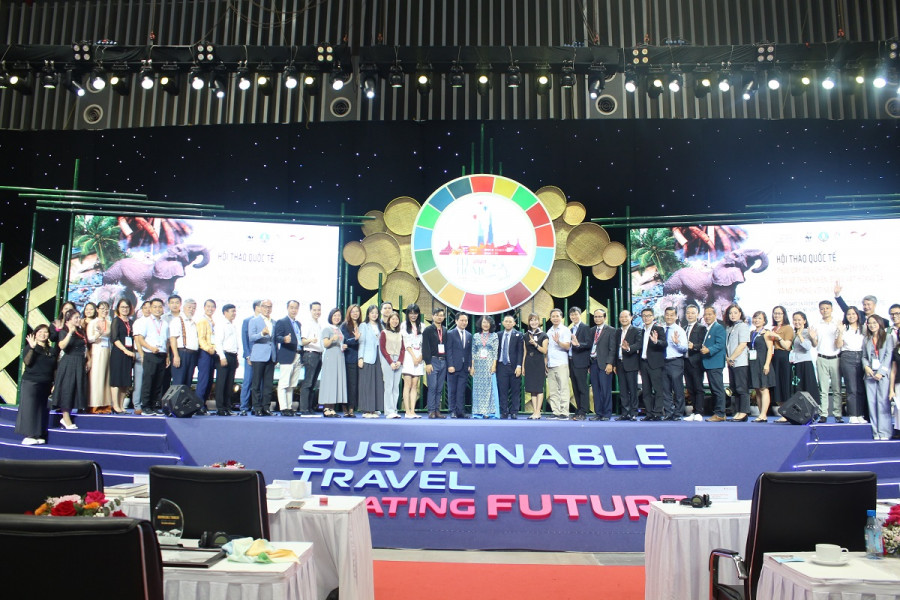
Delegates and distinguished guests taking souvenir photo (Photo: TITC)
Saying no to ivory, protecting wildlife and building a sustainable tourism model will bring long-term benefits to both the tourism industry and the survival of endangered species. The workshop provides an opportunity to raise awareness, creating new momentum for Vietnam in implementing its commitment to environmental protection and promoting sustainable tourism models in the future.
Tourism Information Technology Center